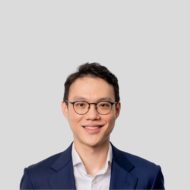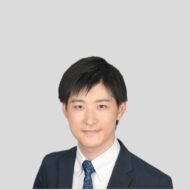LPA Asia Smart News
Raphaël Chantelot
 Hélène LiuCollaborateurShanghai
Hélène LiuCollaborateurShanghaiHélène Liu
 Ran HuAssociéParis
Ran HuAssociéParisRan Hu
 Bérengère RoigAssociéSingapour
Bérengère RoigAssociéSingapourBérengère Roig
 Mina IshikawaCollaborateurTokyo
Mina IshikawaCollaborateurTokyoMina Ishikawa
 Bo HanCounselParis
Bo HanCounselParisBo Han
 Yun ZhangCollaborateurShanghai
Yun ZhangCollaborateurShanghaiYun Zhang
 Ayano KanezukaAssociéTokyo
Ayano KanezukaAssociéTokyoAyano Kanezuka
 Estelle ChenCollaborateurShanghai
Estelle ChenCollaborateurShanghaiEstelle Chen
 Lionel VincentAssociéTokyo
Lionel VincentAssociéTokyoLionel Vincent
 Li Ke ChengCollaborateurSingapour
Li Ke ChengCollaborateurSingapourLi Ke Cheng
 Sabrine Cazorla ReverreOf counselSingapour
Sabrine Cazorla ReverreOf counselSingapourSabrine Cazorla Reverre
 Hubert BazinAssociéShanghai
Hubert BazinAssociéShanghaiHubert Bazin
 Astrid CippeOf counselSingapour
Astrid CippeOf counselSingapourAstrid Cippe
 Kosuke OieAssociéTokyo
Kosuke OieAssociéTokyoKosuke Oie
 Chin Hiang WuOf counselSingapour
Chin Hiang WuOf counselSingapourChin Hiang Wu
 Pascal MagesAssociéTokyo
Pascal MagesAssociéTokyoPascal Mages
 Jing HuangCollaborateurTokyo
Jing HuangCollaborateurTokyoJing Huang
 Fanny NguyenAssociéShanghai
Fanny NguyenAssociéShanghaiFanny Nguyen
 Karim BoursaliCollaborateurSingapour
Karim BoursaliCollaborateurSingapourKarim Boursali
 Megumi MurakamiJuristeTokyo
Megumi MurakamiJuristeTokyoMegumi Murakami
 Shunsuke YahagiJuristeTokyo
Shunsuke YahagiJuristeTokyoShunsuke Yahagi
 Jean-Yves ToullecAssociéHong Kong
Jean-Yves ToullecAssociéHong KongJean-Yves Toullec
 Airi TozakiCounselParis
Airi TozakiCounselParisAiri Tozaki
 Camilla VenanziCollaborateurHong Kong
Camilla VenanziCollaborateurHong KongCamilla Venanzi
 Henrick EmeriauAssociéShanghai
Henrick EmeriauAssociéShanghaiHenrick Emeriau
 Marie-Gabrielle du BourblancCounselHong Kong
Marie-Gabrielle du BourblancCounselHong KongMarie-Gabrielle du Bourblanc
 Arnaud Bourrut-LacoutureAssociéSingapour
Arnaud Bourrut-LacoutureAssociéSingapourArnaud Bourrut-Lacouture
 Xinyu XieCollaborateurShanghai
Xinyu XieCollaborateurShanghaiXinyu Xie
 Jean MédecinOf counselTokyo
Jean MédecinOf counselTokyoJean Médecin
 Nicolas VanderchmittAssociéHong Kong
Nicolas VanderchmittAssociéHong KongNicolas Vanderchmitt


Through this newsletter, we provide you with a regular selection of legislative updates and judicial insights prepared by LPA lawyers from our four Asian offices, along with recent news from our teams.
Key Amendments under the Anti-Money Laundering and Other Matters Act 2024 in Singapore
New rules regarding the gradual raising of the statutory retirement age in China
Introduction of measure for non-display of addresses of representative directors
SMART ALERT
Key Amendments under the Anti-Money Laundering and Other Matters Act 2024 in Singapore
On 6 August 2024, Parliament passed into law the Anti-Money Laundering and Other Matters Act 2024 (the “Act”), and the Act was subsequently assented to by the President on 26 August 2024. The Act was likely in response to the multi-billion dollar money-laundering operation which was uncovered by the Singapore Police Force in August 2023, the perpetrators of which were Chinese nationals who were also holders of various non-Chinese passports.
The Act seeks to: (i) enhance the ability of LEAs to pursue and prosecute money-laundering offences, (ii) clarify and improve our processes to deal with seized or restrained properties linked to suspected criminal activities; and (iii) align the existing AML/CFT framework with the FATF standards.
The Act intends to achieve the aims set out above by amending several key pieces of legislation, including the following:
- Corruption, Drug Trafficking and Other Serious Crimes (Confiscation of Benefits) Act 1992 (the “CDSA”)
Under the Act, the Prosecution is no longer required to establish a direct link between the criminal conduct and the monies allegedly laundered in Singapore. Instead, it will be sufficient for the Prosecution to prove beyond reasonable doubt that the money launderer knew or had reasonable grounds to believe that he was dealing with criminal proceeds. This amendment will facilitate the prosecution of money mules, particularly in cases where the monies laundered had passed through bank accounts and intermediate in foreign jurisdiction, before entering Singapore. This also addresses the difficulties of gathering evidence from foreign victims, entities and jurisdictions, especially when the monies had passed through multiple foreign jurisdictions.
- Criminal Procedure Code 2010 (the “CPC”)
The Act amends the CPC to allow the sale of seized or restrained properties and deal with seized properties linked to suspects who have absconded, i.e. a person who cannot be found, apprehended or extradited within 6 months from the dated on which investigations were commenced against that person. These amendments aim to reduce the costs of maintaining seized assets and preserve their value and prevent the premature release of seized properties during ongoing investigation.
- Casino Control Act 2006 (the “CCA”)
The amendments to the CCA aim to align Singapore’s regulatory framework with the standards set by the FATF. The Act tightens requirements for casino operators to carry out their customer due diligence (“CDD”) checks in order to detect and prevent money laundering, terrorism financing and proliferation financing. Additionally, the threshold for conducting CDD checks will be lowered to cover cash transactions or deposits of $4,000 or more.
- Key Amendments to Trade And Taxes Legislation
The Act amends the Free Trade Zones Act 1966, Goods and Services Tax Act 1993, Income Tax Act 1947, and the Regulation of Imports and Exports Act 1995, in order to allow government agencies to share tax data and trade data with Singapore’s Financial Intelligence Unit, the Suspicious Transaction Reporting Office (“STRO”) of the Commercial Affairs Department of the Singapore Police Force. This data-sharing will enhance STRO’s ability to analyse money laundering, terrorism financing and proliferation financing risks and provide more comprehensive intelligence to LEAs and regulators.
Impact on Future Deals
While the Act does not pose any direct impediments to future transactions (acquisitions, divestments, investments, etc.), the passing of the Act indicates a strong push by the Singapore government towards improving the transparency of financial reporting and enhanced regulatory oversight. Parties involved in transactions in Singapore are reminded to be careful on the identities of their commercial partners and the origin of funds that are transiting through their entities. Banks, legal counsels and company secretaries are themselves subject to strong legal obligations of scrutiny.
Arnaud Bourrut-Lacouture | Bérengère Roig | Li Ke Cheng
LEGAL INSIGHTS IN ASIA
Hong Kong introduces a patent box tax incentive for taxable profits derived from certain types of intellectual property
The Inland Revenue (Amendment) (Tax Concessions for Intellectual Property Income) Ordinance 2024 (the “Ordinance”) was enacted to introduce a patent box tax incentive for taxable profits derived from certain types of intellectual property in Hong Kong (the “Patent Box Incentive Regime”). This measure aims to promote research and development (“R&D”) and the commercialization of intellectual property by offering preferential tax rates. The Ordinance was gazetted on 5 July 2024 and applies retroactively from the year of assessment 2023/24.
- Overview of the Patent Box Incentive Regime
The Patent Box Incentive Regime grants a concessionary tax rate of 5% (the “Concessionary Rate”) on specific income derived from eligible intellectual property rights (“IP”), as defined in the Ordinance. This concession applies solely to revenue-based IP income, excluding capital gains, which remain exempt from profits tax in Hong Kong.
To qualify, a taxpayer must (a) meet the criteria of an eligible person under the regime, (b) derive qualifying IP income (“Eligible Income”) from eligible IP, and (c) submit an irrevocable written election for the Eligible Income to be taxed at the Concessionary Rate.
Eligible Person
An eligible person is defined as any individual or entity entitled to receive Eligible Income from qualifying IP. This encompasses both legal owners of the IP and non-owners who hold income rights to the IP.
Eligible IP
Only income that derives from the categories of income identified under the Ordinance (the “Eligible IP”) can enjoy the Concessionary Rate. Eligible IP refers to IP that is generated from R&D activities and includes:
- patents, whether granted or applied for under the Patents Ordinance (Cap. 514) in Hong Kong or through a patent office outside Hong Kong;
- plant variety rights, and
- copyrighted software protected under the Copyright Ordinance (Cap. 528) or equivalent foreign law.
For patents and plant variety rights, applications made or granted after 5 July 2026 outside Hong Kong must also be filed or granted in Hong Kong.
Eligible Income
Eligible Income includes:
- income from the exhibition or use of an Eligible IP asset, generally including royalties and licensing income;
- the portion of income from the sale of products or services attributable to an Eligible IP; or
- income from the sale of an Eligible IP itself;
- proceeds from insurance, damages, or compensation in relation to an Eligible IP.
Only IP developed by the taxpayer qualifies as Eligible IP. If R&D involves acquiring third-party IP or outsourcing, the Eligible Income may be adjusted proportionately.
The determination of Eligible IP income subject to the Concessionary Rate is based on the « nexus approach » outlined by the Organization for Economic Co-operation and Development (OECD) in its Base Erosion and Profit Shifting (BEPS) Action 5 Report.
- Conclusion
The Patent Box Incentive Regime is a strategic initiative to incentivize IP development and innovation in Hong Kong. By offering substantial tax relief to businesses that invest in R&D and IP commercialization, the regime aims to bolster Hong Kong’s standing as a hub for IP trading and foster growth in the industrial and R&D sectors associated with IP in the region.
Nicolas Vanderchmitt | Marie-Gabrielle du Bourblanc | Camilla Venanzi
New rules regarding the gradual raising of the statutory retirement age in China
On September 13, 2024, the Standing Committee of the National People’s Congress and the State Council issued the Decision on the Implementation of the Gradual Raising of the Statutory Retirement Age and the Measures on the Gradual Raising of the Statutory Retirement Age, both of which will take effect on January 1, 2025.
This article outlines the major changes introduced by the new legislation.
Starting January 1, 2025, the statutory retirement age for male employees will gradually increase from the current 60 years to the 63 years, while for female employees, it will increase from 50 and 55 years to 55 and 58 years, respectively. For male employees, the statutory retirement age applies uniformly regardless of position. However, for female employees, the retirement age will vary depending on their job roles, with further classification details to be established through supporting legislation.
Beginning January 1, 2030, the minimum required contribution period for social insurance premiums will gradually increase from 15 years to 20 years for both male and female employees. Employees who reach the statutory retirement age but have not fulfilled the minimum contribution period may either make a lump-sum payment to cover the shortfall or defer their retirement, subject to their employers’ approval.
One of the most notable innovations under the new rules is the option for early or deferred retirement. Employees who have met the minimum social insurance contribution period may opt for early retirement, up to three years before their statutory retirement age, provided they are not below their original statutory retirement age. Early retirement is entirely at the employee’s discretion, and employers may not intervene. In contrast, deferred retirement, which applies once the statutory retirement age is reached, requires the employer’s approval and can be extended by a maximum of three years. Given that differed retirement may increase labor costs and risks for employers, their consent is necessary.
In summary, from an employer’s perspective, the new regulations will significantly impact the current employment system. This includes, but is not limited to, adjustments in employee contract terminations and associated compensation, social insurance premium contributions, and labor protection obligations.
Key updates on Singapore Employment Law: Employment Pass, Flexible Work Arrangements, parental leave, and workplace safety
- Singapore Employment Pass updates
The Ministry of Manpower has raised the qualifying salaries for the Employment Pass (“EP”) as follows:
- An increase from S$5,000 to S$5,500 per month for all sectors except Financial Services, with a progressive increment with age 23 up to S$10,700 for applicants aged 45 and above instead of the current qualifying salary of S$10,500.
- An increase from S$5,500 to S$6,200 per month for the Financial Services sector, with a progressive increment with age 23 up to $11,800 for applicants aged 45 and above instead of the current qualifying salary of S$11,500.
These revised qualifying salaries will be effective for:
- New EP applications starting from January 1, 2025, and
- Renewal of EP applications for EPs expiring from January 1, 2026.
The new changes to the Singapore EP application include implementing the Complementarity Assessment Framework (“COMPASS”).
The first stage to get an EP is to meet the qualifying salary, and the second is to pass a points-based assessment. COMPASS assesses every EP application based on a holistic set of individual and firm-related attributes, focusing on enabling employers to select high-quality foreign professionals while improving workforce diversity and building a strong local core.
Please note that the COMPASS for new EPs applications is mandatory since September 1, 2023, and is mandatory for renewals of EPs expiring as from September 1, 2024.
- Clarification on the Tripartite Guidelines on Flexible Work Arrangement Requests (“TG-FWAR”)
In an oral response to parliamentary questions regarding the TG-FWAR, the Ministry of Manpower (“MOM”) clarified that flexible work arrangements (“FWAs”) do not equate to work from home only and can include flexi-time and flexi-load arrangements.
The MOM emphasized the importance of employees and employers discussing arrangements that address their respective needs and constraints and highlighted the resources which the Tripartite Alliance for Fair Employment Practices (“TAFEP”) and the Institute for Human Resource Professionals (“IHRP”) will be rolling out this year, such as self-help resources which can already be found on the TAFEP’s website and monthly briefings for all employers beginning from May 2024.
The TAFEP will also provide more guidance to help employers understand the types of FWAs they can offer to employees with different needs, such as senior employees who may prefer flexi-load, or mobility-challenged workers who may need telecommuting arrangements. Employers may also tap on grants such as the Productivity Solutions Grant to offset the costs of adopting FWAs, such as for consultancy services to redesign jobs or business processes and upgrade their IT systems to support FWAs.
- Updates in parental leaves
During his National Day Rally speech on Sunday August 18, 2024, the Prime Minister of Singapore announced changes concerning paternity leave (i) and shared parental leave (ii).
Paternity leave
Currently, eligible fathers with Singapore citizen children are entitled to 2 weeks of government paid paternity leave with the option for employers to grant an additional 2 weeks of government paid paternity leave on a voluntary basis.
However, from April 1, 2025, the additional two weeks of government paid paternity leave (which employers currently have the option to offer on a voluntary basis) will be made mandatory. As such, eligible fathers with Singapore citizen children born on or after Aril 1, 2025 will be entitled to 4 weeks of government paid paternity leave.
Shared parental leave
Currently, eligible fathers with Singapore citizen children may share up to 4 weeks of their spouse’s government paid maternity leave.
However, with effect from April 1, 2025, an additional 6 weeks of government paid shared parental leave will be provided on top of maternity leave to be shared between the parents.
With effect from April 1, 2026, the additional 6 weeks of government paid shared parental leave (to be in effect from 1 April 2025) will be increased to 10 weeks of government paid shared parental leave.
- Updates in regulations for Workplace Safety and Health (“WSH”)
Two significant measures has been implemented by The Multi-Agency Workplace Safety and Health Taskforce from June 1, 2024.
These two new measures are aimed at reducing the number of workplace death and incidents under the Workplace Safety and Health Act (WSHA)’s Subsidiary Legislation. These measures are (i) increased penalties for maximum fines for safety breaches and (ii) video surveillance system requirements for companies in the construction sector.
Increase in Maximum Fines for Safety Breaches
The maximum fine for the first conviction of offences which are a major cause of serious harm (i.e. death, serious bodily injury, or dangerous occurrence) has been increased from SGD 20,000 to SGD 50,000.
The maximum fine for the first conviction of offences which are not a major cause but contribute to serious harm is SGD 20,000.
The maximum fine for the first conviction of less serious offences that are procedural or administrative in nature is S$10,000 and below.
The increase in the maximum fines aims to strengthen ownership and accountability of WSH.
Employers must ensure that directors and senior employees are aware of the increased penalties associated with safety breaches under the WSHA Subsidiary Legislation.
Mandatory installation of Video Surveillance System
All construction sites with a contract sum of S$5 million and above will be required to install VSS at worksite locations where high-risk work activities are conducted. Further details may be found in the WSH Guide on Video Surveillance System published by the WSH Council.
By enabling remote monitoring and video capture, this aims to deter unsafe workplace behaviours, provide valuable training resources for companies, and offer insights for investigations of safety incidents.
Introduction of measure for non-display of addresses of representative directors
Effective from 1 October 2024, the measure for the non-display of addresses of the legal representative of a Japanese company (hereinafter referred to as the « Measure« ) introduced by the Supplementary Provisions of the Ministerial Order Partially Amending the Regulation on Commercial Registrations (Ministry of Justice Ordinance No. 28 of 2024), has been enacted. Under specified conditions, the address of the legal representative, which was previously disclosed to third parties on the certification of incorporation, may now be omitted.
- Overview of the Measure
Background of the Measure’s Introduction
Pursuant to the Japanese Companies Act, representative directors (in the case of stock companies), representative executive officers (in the case of companies with a nominating committee, etc.), or representative liquidators (in the case of companies undergoing liquidation) (hereinafter collectively referred to as the « Representative Director« ) are required to register their personal addresses and this information is accessible to any third party obtaining a certificate of incorporation (toki).
However, with the proliferation of the Internet and social media and for the purpose of protection of such personal data, the legal requirement to disclose personal information of the legal representative of a Japanese company, such as personal addresses, has deterred starting a business due to concerns about privacy exposure of the Representative Directors. In some cases, such privacy exposure of the Representative Directors’ personal addresses has led to serious breaches of their privacy such as criminal behavior from stalkers. Therefore, the Measure was enacted to address privacy concerns, promote ease of business formation in Japan, and provide a safeguard of privacy for individuals initiating business activities.
Display of the Representative Directors on the company registry
Upon the application of the Measure, the personal address of the Representative Directors will be displayed only up to the minimal administrative division in the certificate of registered matters on the company registry as follows.
| Before | ➡ | After |
| 1-2-3, Otemachi ,Chiyoda-ku, Tokyo Representative Director: Taro Yamada |
Chiyoda-ku, Tokyo Representative Director: Taro Yamada |
- Application Procedures and Requirements
Application to introduce the Measure
- Eligible Legal Entities: The Measure applies exclusively to « stock companies (Kabushiki Kaisha)”.
Membership companies such as Godo Kaisha, other partnership companies, and other legal entities are not subject to the Measure. Limited liability companies (Yuugen Kaisha), which are treated as stock companies under the Companies Act, are also excluded.
- Timing of Application: the application for the Measure must be filed at the Legal Affairs Bureau having jurisdiction over the company concurrently with the application of the following registrations:
-
- Registration of incorporation
- Registration of relocation of head office outside the jurisdiction
- Registration of appointment (including reappointment) of the Representative Director.
- Registration of change of address of the Representative Director.
Continuation of the Measure
In case the Measure is applied, it will be automatically maintained in case of reappointment or change of company’s registered address without any additional application to be made at the Legal Affairs Bureau. However, in case of a change of personal address of the Representative Director, the company must apply to the Legal Affairs Bureau for the change of personal address of the Representative Director and request at the same time the application of the Measure. Failure to apply for the Measure at the time of the registration of the new Representative Director’s address will result in the publication of such new address on the certificate of registration.
Termination of the Measure
The Registrar shall terminate the Measure ex officio in the following cases.
-
- Upon a company’s request to discontinue the Measure
- When the registered head office location no longer has a verifiable presence
- When the company ceases to be a publicly listed entity in the case of the listed companies
- In cases where reinstatement of closed registration records is deemed necessary
- Important Considerations
- Even with the Measure in effect, the address of the Representative Director may be provided upon request from government agencies.
- Even after the application of the Measure, the former display of the address of the Representative Director recorded in the registry is not deleted from the updated certificate of incorporation (toki). For example, if a Representative Director is reappointed and the Measure is taken at the same time, the following will appear in the registration record.
| Before | ➡ | After |
| 1-2-3, Otemachi ,Chiyoda-ku, Tokyo Representative Director: Taro Yamada |
1-2-3, Otemachi ,Chiyoda-ku, Tokyo Representative Director: Taro Yamada |
|
| Chiyoda-ku, Tokyo Representative Director: Taro Yamada Reappointment on 1 October 2024 Registered on 1 October 2024 |
- Adopting this Measure may impact business activities. If the Measure is implemented, the address of the Representative Director, cannot be proved by the certificate of incorporation, which may lead to some inconveniences in receiving bank loans from financial institutions and an increase in the number of documents (certificate of corporate seal impression, etc.) required for real estate transactions, etc.
- Even if the Measure is adopted, the registration obligation stipulated in the Companies Act (Law No. 86 of 2005) is not exempted, so if there is a change in the address of the Representative Director, an application for registration of such change must be filed at the Legal Affairs Bureau. The deadline for applying for registration of a change of address is within 2 weeks from the date of the change, and failure to do so is subject to an administrative fine of up to 1 million yen (Article 976, Item 1 of the Companies Act).
- In case of this Measure is requested at the time of registration at the Legal Affairs Bureau, the address of the Representative Director, must be stated in the application form for registration, so care should be taken not to forget to mention the personal address of the Representative Director on the application form.
- Conclusion
While the Measure serves as a step towards protecting the privacy of the Representative Director, certain limitations provided by the reform, such as its restrictive application to the joint stock companies and partial address disclosure for some cases, may reduce its practical impact. In addition, the impact on business activities in light of current business practices toward the Japanese financial institution for example remains uncertain. As such, careful deliberation is advised before adopting the Measure, recognizing that its relevance may differ significantly among companies, businesses, and development strategies in Japan.
Pascal Mages | Megumi Murakami
OUR LATEST DEALS
Elis / Hygiene and facility solutions
LPA Singapore advised Elis, a listed company specialized in circular services at work, on its recent acquisition of Wonway Manufacturing, a Malaysian company specializing in the rental of cleanroom garments. LinkedIn
Alvest Equipment Services / Aviation & Aerospace
LPA Hong Kong advised Alvest Equipment Services (AES), a subsidiary of the French industrial group Alvest, a key player in the design, manufacture, and distribution of technical solutions for aviation and aerospace, in the acquisition of a shareholding interest in CTAS Aviation Services Limited. LinkedIn
Lectra / Industry 4.0
LPA Singapore advised Lectra, a key Industry 4.0 player, on its strategic partnership with the Singapore-based company Six Atomic, an AI SaaS solutions specialist. LinkedIn
Sunset Hospitality Group / Hospitality
LPA Singapore advised Sunset Hospitality Group, a Dubai-based leading multinational lifestyle hospitality group, on its recent addition of the iconic Hotel Fort Canning Singapore (The Legends Fort Canning Park). LinkedIn
NEWS FROM LPA
Team | Xinyu Xie joined the Corporate and Tax Team of LPA Shanghai as Associate, effective from August 2024. Xinyu holds the Certificate of Aptitude for the Legal Profession in the People’s Republic of China. She advises both Chinese and foreign clients on their day-to-day legal needs and has developed expertise in cross-border M&A, corporate law, labor and tax. Her work spans strategic sectors such as energy, e-commerce, lifesciences and healthcare.
Team | Megumi Murakami joined LPA Tokyo as a new Judicial Scrivener. Megumi has extensive legal experience as a paralegal, primarily focusing on commercial registration and corporate clerical services. She advises domestic and international clients on various aspects of Corporate and Commercial services, and Real Estate transitions, as well as all related formalities as a Judicial Scrivener (Shiho-shoshi). LinkedIn
Ranking | Our four offices in Asia – LPA Hong Kong, LPA Shanghai, LPA Singapore and LPA Tokyo – have been awarded in 2024 in M&A, M&A Foreign and Restructuring & Insolvency practices by IFLR1000 Asia Pacific guide. Additionally, six partners and one lawyer have received individual rankings for their contributions. LinkedIn
Appointment | Lionel Vincent, Managing Partner of LPA Tokyo, has been appointed as Foreign Tarde Advisor (Conseiller du Commerce Extérieur, CCE) for Japan. This recognition is a testament to his unwavering commitment and invaluable expertise in international business. As a CCE, Lionel will play a key role in strengthening commercial ties between the business communities of France and Japan, fostering collaboration, and seeking new growth opportunities between the two countries. LinkedIn
Upcoming event | Nicolas Vanderchmitt, Managing Partner of LPA Hong Kong, is organizing, in collaboration with Banque Transatlantique, CIC Conseil and Fondation de France in Asia, a breakfast talk (in French), on the theme: « Keys to success for preparing and realizing the succession of one’s enterprise, zoom on the financial, legal, and tax aspects ». This roundtable event, taking place on November 20, 2024, will be held both in person and online. Register by clicking here (in French)
Past event | Marie-Gabrielle du Bourblanc, Counsel at LPA Hong Kong, had the privilege of speaking at an interactive session organized by Creative Valley and the Hong Kong Trade Development Council, dedicated to Hong Kong on September 11, 2024. This conference focused on Hong Kong’s role as a hub for innovation, startups and corporates, featuring esteemed speakers. LinkedIn
Past event | LPA Shanghai and the China desk of LPA-CGR avocats participated in the CIFTIS exhibition, an international fair and trade platform dedicated to trade in services, held in Beijing, China in September 2024. This year, France was the guest country of honor, with a special national pavilion built to commemorate the 60th anniversary of diplomatic relations between China and France. The exhibition offered a wonderful opportunity to connect with Chinese entrepreneurs and investors from various industries and explore new avenues for collaboration. LinkedIn (in french)
Past event | LPA Singapore had the privilege of partnering with the French Chamber of Commerce in Singapore (FCCS) to organize its flagship event, « Welcome to Singapore », held on September 18, 2024. This event provided a fantastic opportunity to network and connect with the French business community in Singapore. A special highlight this year was our collaboration with Wildness Organic Chocolate, who handcrafted chocolate bars for our distinguished guests at the APSN Centre for Adults with Special Needs. LinkedIn
Past event | LPA Hong Kong had the privilege of partnering the first edition of the Hong Kong Entrepreneur Day organized by the French Chamber in Hong Kong on October, 15, 2024. Nicolas Vanderchmitt, Managing Partner of LPA Hong Kong, was delighted to support and attend this event, which brought together over 120 attendees for a day of valuable insights, forward-thinking ideas, and meaningful discussions. LinkedIn
Past event | Kosuke OIE, Partner at LPA Tokyo, recently joined a panel at the International Bar Senate organized by the UIA Union Internationale des Avocats in Paris. This esteemed gathering brought together legal experts and leaders from around the world to discuss the crucial role of lawyers and bar associations in safeguarding freedom of expression – a cornerstone of democratic societies. LinkedIn





